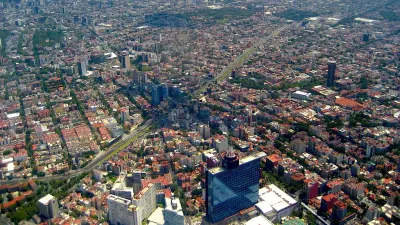Luis Alberto Moreno explores how Facebook and Twitter are improving cities in the developing world, as the governments of many Latin American municipalities take advantage of the explosive growth of social media to engage with citizens.

Moreno surveys the growing use of social media by governments of Latin American cities large and small as the "[u]se of social media [grows] at a breathtaking pace across the region." For an example, he turns to the Twitter feed of the mayor of Mexico City. "At first glance, it looks like a strange mix of unedited rants by aggravated citizens and upbeat public relations by an ambitious mayor. But a sustained look shows that a surprising number of these virtual conversations follow a cycle - citizen complains, mayor listens, city solves the problem - that until recently would have seemed utopian for an overpopulated and underfinanced metropolis in the developing world."
"The governments of virtually all large Latin American cities now use social media to engage with citizens, and smaller cities are quickly following suit," says Moreno. "The Inter-American Development Bank recently found that social media is used by governments in 70 percent of the region´s 140 'emerging cities' (those having 100,000 to 2 million residents and above-average economic growth rates)."
Looking at the prospects for the continued use of such platforms in the future, Moreno believes that, "[a]t a minimum, these technologies will give new vitality to the ancient ideals of participation and accountability. At best, they might shorten the wait for new lights in a darkened park. In either event, the next mayor of Mexico City, like others across the developing world, will not really have the option of ignoring social media. That's where people are choosing to speak, and where they expect to be heard."
FULL STORY: How Facebook and Twitter Are Making Developing World Cities Better

National Parks Layoffs Will Cause Communities to Lose Billions
Thousands of essential park workers were laid off this week, just before the busy spring break season.

Retro-silient?: America’s First “Eco-burb,” The Woodlands Turns 50
A master-planned community north of Houston offers lessons on green infrastructure and resilient design, but falls short of its founder’s lofty affordability and walkability goals.

Delivering for America Plan Will Downgrade Mail Service in at Least 49.5 Percent of Zip Codes
Republican and Democrat lawmakers criticize the plan for its disproportionate negative impact on rural communities.

Test News Post 1
This is a summary

Test News Headline 46
Test for the image on the front page.

Balancing Bombs and Butterflies: How the National Guard Protects a Rare Species
The National Guard at Fort Indiantown Gap uses GIS technology and land management strategies to balance military training with conservation efforts, ensuring the survival of the rare eastern regal fritillary butterfly.
Urban Design for Planners 1: Software Tools
This six-course series explores essential urban design concepts using open source software and equips planners with the tools they need to participate fully in the urban design process.
Planning for Universal Design
Learn the tools for implementing Universal Design in planning regulations.
EMC Planning Group, Inc.
Planetizen
Planetizen
Mpact (formerly Rail~Volution)
Great Falls Development Authority, Inc.
HUDs Office of Policy Development and Research
NYU Wagner Graduate School of Public Service


























